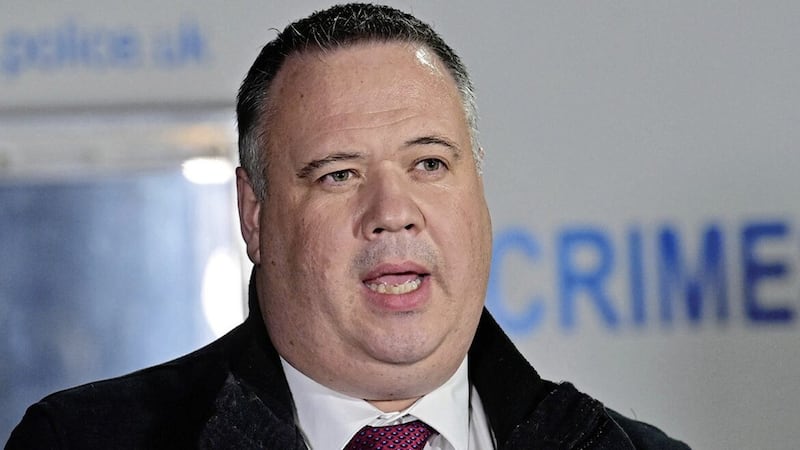THE decision to raise the threat level posed by paramilitary groups comes less than two weeks before the 25th anniversary of the Good Friday Agreement (GFA).
The assessment by MI5, which reviews the threat level every six months, was not unexpected after a recent rise in dissident republican activity, including an attempt last month by the New IRA to kill senior PSNI officer John Caldwell.
Mr Caldwell has been transferred out of ICU, but remains in a serious condition in hospital, police have confirmed.
The threat level now goes from ‘substantial’, meaning an attack is likely to ‘severe’, meaning an attack is highly likely.
The move to raise the threat level comes just a year after it was lowered for the first time in 12 years.
That decision, which always had the potential to prompt a response, raised eyebrows in some quarters as did the reaction of Chief Constable Simon Byrne, who said the move "signals a success".
The decision to raise the alert will be based in part on intelligence assessments.
Read more: Dissident republicans in Northern Ireland - what do they want? An explainer
In announcing the development on Tuesday Secretary of State Chris Heaton-Harris emphasised that the “decision to change the threat level is taken by MI5, independently of ministers”.
While this may be the case, the act of raising the alert level just days before the GFA's 25th anniversary, and a visit to the north by US president Joe Biden to mark the occasion, is something politicians across the board will have wanted to avoid.
The optics of an increased threat alert during the landmark anniversary as the world’s media looks on will be seen by some as putting a dent in the legacy of the GFA.
While the north continues to enjoy relative peace the latest assessment is a reminder of the threat security agencies believe anti-agreement republicans pose.
In recent months both the New IRA and the smaller Arm na Poblachta have been active.
Last November an Improvised Explosive Device (IED) was launched at a PSNI patrol by the group in the Co Tyrone town of Strabane.
Within days a delivery driver was forced to drive a bomb in a hijacked car to a PSNI station in Derry by the group known as Arm na Poblachta (ANP).
Last month the same group said that relatives of PSNI members are now being treated as "legitimate targets".
In a statement to The Irish News ANP also claimed that the device had fallen off a car driven by a PSNI officer in the Lettershandoney area of Co Derry.
However, the PSNI later said nothing was found.
The anti-agreement group also claimed that a device, later described police as viable, was found near GAA grounds in the Waterside area of Derry in February was left by its members.
Days later the New IRA shot and seriously injured senior PSNI officer John Caldwell at a sports complex near Omagh.
Since the shooting the PSNI has been involved in several large scale operations across the north.







